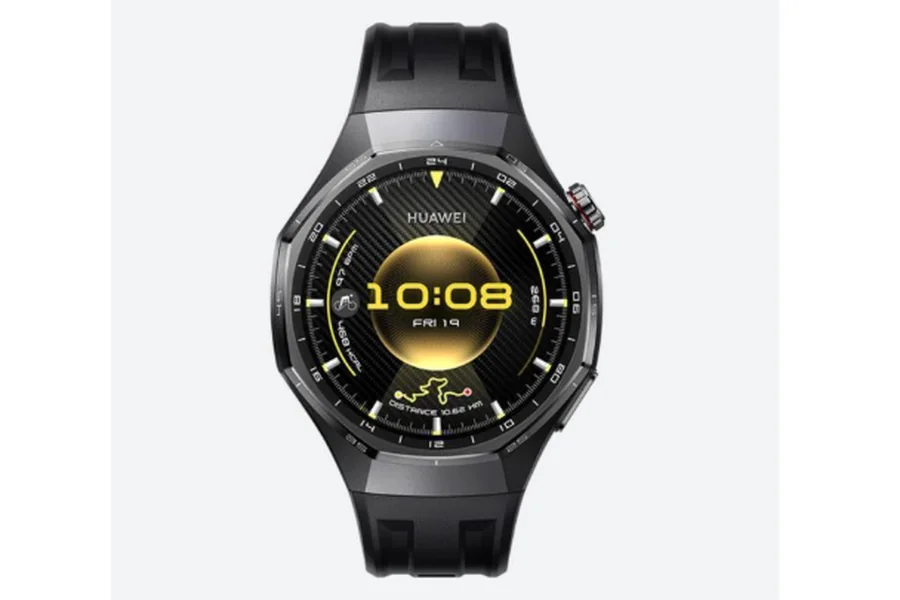Recovery time determines how well a runner adapts to training, maintains form, and stays healthy over the long term. Each run places demands on muscles, tendons, and the nervous system, and these tissues need time to rebuild before the next session. Without proper recovery, performance declines and strain accumulate quietly. Many people misunderstand rest, assuming it means stepping away from training, but smart recovery is actually an active part of progress. When you understand the relationship between running and recovery, every session becomes more productive. Tools like the HUAWEI WATCH GT 6 Pro help you observe your body through heart rate patterns, sleep metrics, and fatigue monitoring, supporting balanced training without interrupting your routine.
How Recovery Time Shapes Long-Term Running Comfort?
Recovery Helps Your Muscles Adapt and Become More Efficient
Every run creates tiny stresses in your muscles. These stresses are normal, and your body responds by repairing muscle tissue to make it stronger and more efficient. Without enough recovery time, this rebuilding process remains incomplete. When you allow space between training sessions, you help your muscles absorb the benefits of the work you’ve done. This makes daily running feel smoother and more controlled. A smartwatch helps track how your body responds to different training loads. The HUAWEI WATCH GT 6 Pro provides heart rate insights and other indicators that show how intensely you trained, allowing you to judge whether your body needs extra rest, lighter activity, or more time before your next hard effort.
Adequate Recovery Supports Joint Comfort and Safe Stride Mechanics
Running places repetitive force through your joints. With proper recovery, your tissues regain their elasticity and strength, allowing your joints to maintain their natural stability. When recovery is rushed, your stride can feel stiff or unbalanced, which increases stress on your knees, hips, and ankles. Taking proper recovery time helps you regain your natural rhythm and posture. Smartwatches assist by showing metrics like heart rate trends and movement patterns, which often shift when the body is fatigued. With the clear outdoor visibility of the HUAWEI WATCH GT 6 Pro display, you see how your body responds during runs of different intensities, helping you identify when your stride feels more controlled after good rest.
Recovery Strengthens the Nervous System, Not Just the Muscles
Runners often overlook the role of the nervous system in daily training. Every pace change, stride adjustment, or terrain shift requires coordination, and this coordination depends on neurological freshness. When you rest, your nervous system resets, making your movement smoother and more responsive. Without recovery, even simple runs may feel mentally or physically harder because signals between the brain and muscles slow down. Tools like the HUAWEI WATCH GT 6 Pro help you observe patterns such as fatigue trends and stress indicators, giving you a fuller picture of how your body reacts to training. When these patterns remain balanced, your nervous system stays ready for the next session.
How Daily Runners Can Use Smart Recovery Strategies to Improve Progress?
Use Sleep as Your Primary Recovery Tool
Sleep plays a major role in helping you recover from daily training. During sleep, your body releases hormones that repair tissue, restore energy, and regulate the systems that support performance. When sleep is consistent, your runs feel lighter and more stable. When sleep is lacking, even an easy session may feel more difficult. A smartwatch helps monitor sleep stages, wake patterns, and overall restfulness. The HUAWEI WATCH GT 6 Pro enhances this insight by offering detailed sleep tracking and respiratory and heart rate observations, giving you practical information you can use to adjust your training cycles. Quality sleep ensures that each run builds on the last rather than drains your energy.
Monitor Fatigue and Stress to Avoid Daily Overload
Daily runners often push through fatigue because they assume consistency means running at full effort. However, understanding stress and fatigue helps you train smarter. Fatigue affects mechanics, and stress influences motivation and resilience. Monitoring these indicators gives you early warning signs that you need lighter activity or longer rest. The HUAWEI WATCH GT 6 Pro supports this with around-the-clock fatigue monitoring, helping you recognize changes in heart rate variability and stress levels. When you see certain readings trending higher, you can adjust your training intensity to avoid excessive strain. This helps you maintain healthier patterns across weeks, not just single days.

Balance Hard Days With Light Days for Better Long-Term Growth
A smart training plan balances harder efforts with recovery-focused sessions. Light runs, mobility work, or days of gentle movement allow your body to catch up without stopping activity entirely. This approach helps you stay consistent while managing stress on your tissues. A smartwatch helps you see whether your easy days truly stay easy. With the HUAWEI WATCH GT 6 Pro, you can check your heart rate zones, pace, and overall training effect to confirm that recovery runs stay gentle. Over time, this balance prevents burnout and creates a training cycle that feels sustainable and enjoyable. It also helps you run safely for longer without sacrificing progress.
Conclusion
Recovery time is essential for daily runners because it allows the body to rebuild, reset, and stay resilient. Muscles adapt only when given space to recover, joints move more smoothly after rest, and the nervous system functions more effectively when it isn’t constantly stressed. Smartwatches support recovery awareness by showing patterns in sleep, heart rate, fatigue, and training responses. The HUAWEI WATCH GT 6 Pro provides insights into these factors, helping runners understand how their bodies react to different workloads and guiding them toward more balanced routines. When recovery becomes part of your training strategy, running feels smoother, progress becomes steadier, and long-term health stays protected.





